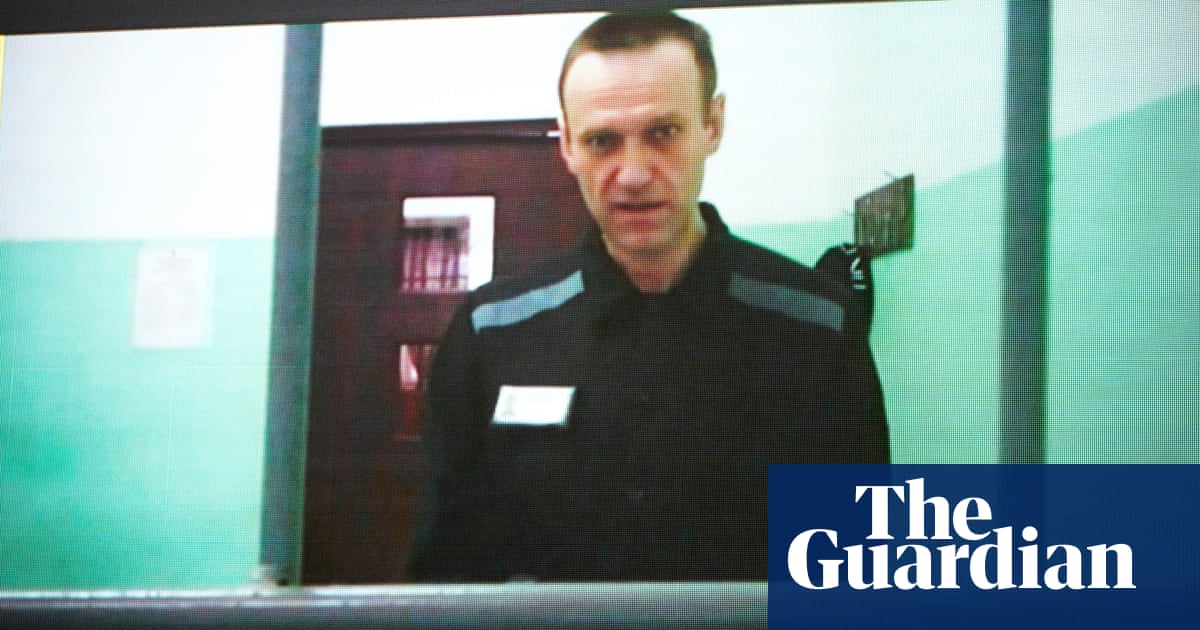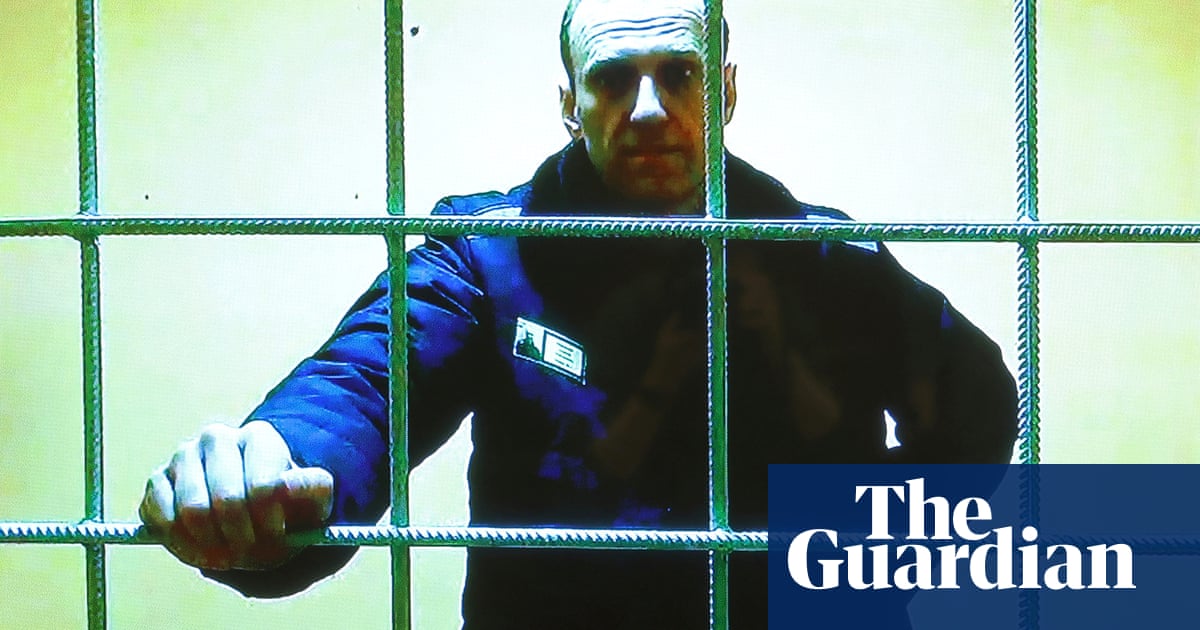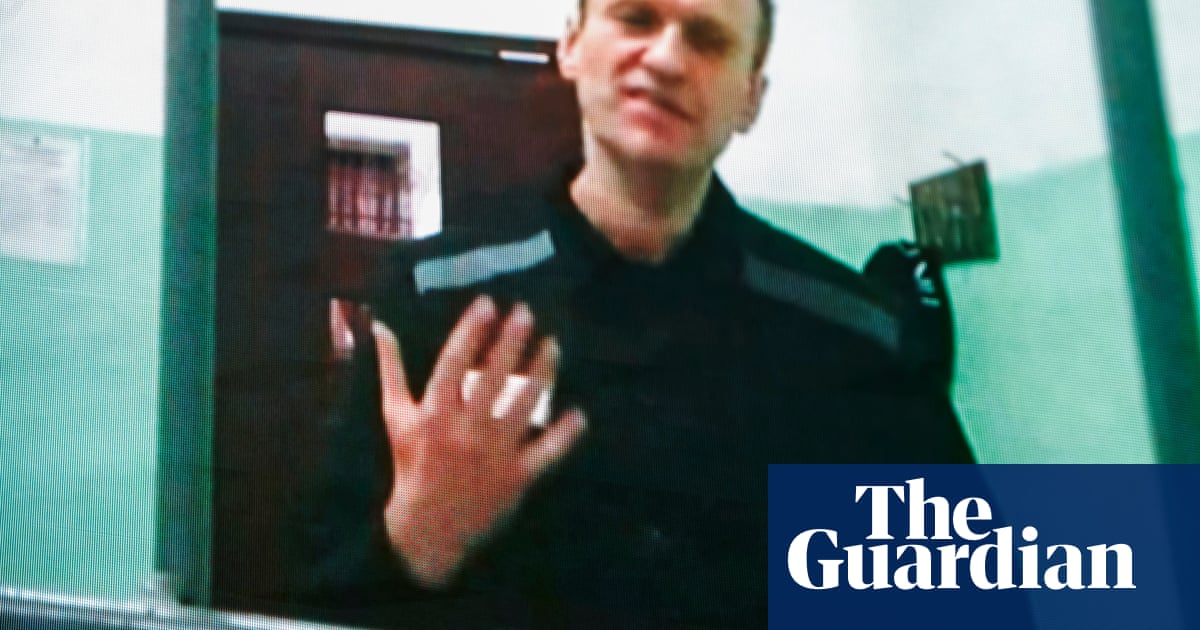
The Russian opposition leader Alexei Navalny is in a coma and on a ventilator in a hospital intensive care unit after a suspected poisoning his supporters believe is tied to his anti-Kremlin activism.
An outspoken critic of the Russian president, Vladimir Putin, Navalny was returning to Moscow by plane from Siberia when he fell ill, prompting the captain to make an emergency landing in Omsk, where he was taken to hospital. A mobile video shot on the plane showed medical personnel rushing onboard as Navalny screamed in agony.
The 44-year-old’s press secretary Kira Yarmysh told the Echo of Moscow radio station that Navalny had begun sweating and then lost consciousness shortly after take-off.
“I am sure this was deliberate poisoning,” she said, added that she suspected a cup of black tea he drank at an airport cafe was the source. She tied the alleged poisoning to upcoming elections in the Siberian regions they had visited.
Officials at the emergency care hospital in Omsk where Navalny is being treated gave contradictory information about his condition and have not allowed his family or supporters in to see him. Anatoly Kalinichenko, the deputy chief doctor of the hospital, confirmed that Navalny was unconscious and on a ventilator, but called his condition “stable”. Doctors “are currently engaged in the process of saving his life”, he said on Thursday afternoon.
If confirmed as a poison attack, it would be the latest in a series of high-profile assaults, often with poison, against opposition figures and Russian dissidents that includes the 2018 poisoning of Sergei Skripal and the 2015 shooting death of opposition politician Boris Nemtsov.
“There was always a worry [about an attack] because Navalny has been the main opponent of Putin and the main opponent of the Kremlin,” said Lyubov Sobol, an ally and lawyer at Navalny’s Anti-Corruption Foundation.
Even as he lay in a coma in hospital, there were signs of pressure on the opposition leader’s family members and political allies. Hospital officials had initially barred Navalny’s wife and a personal doctor from visiting him because Navalny, though unconscious, had not given them permission, Yarmysh said.
Hospital staff had also refused to show them the results of tests that would indicate a poisoning, she said. Investigators who said they wanted to check for medicines or other potential toxins had also seized his belongings, she said.
Pavel Lebedev, a passenger on the flight, wrote on Instagram that Navalny went to the toilet at the beginning of the flight and did not come back. “He started feeling very poorly. They could barely revive him and he’s still crying out in pain,” said Lebedev, who also published a photograph of Navalny drinking from a paper cup at the airport cafe before the flight.
Other video published by several Russian news sites showed the opposition leader being wheeled on a stretcher from the plane to an ambulance waiting on the tarmac in Omsk.
Yarmysh drew a parallel with an incident last year in which Navalny had an acute allergic reaction that one doctor said could have resulted from poisoning with an unknown chemical. “One year ago, Alexei was poisoned when he was in jail,” she wrote. “Clearly the same thing has happened again.”
The German NGO Cinema for Peace Foundation said it was sending an air ambulance to pick up Navalny on Thursday evening and take him to Germany, where it said Berlin’s Charité hospital was ready to treat him. Supporters had earlier in the day indicated that they wanted to move Navalny abroad for treatment but it was not clear whether Russian authorities would allow it.
The Kremlin spokesman Dmitry Peskov said that there would have to be test results before an investigation into poisoning could be opened. Peskov told journalists that he would provide help to have Navalny transferred abroad, if asked. “Just like any citizen of our country, we wish him a speedy recovery,” he said.
Navalny, who has campaigned against Putin’s rule for years, was travelling through several cities in Siberia to back candidates he supports in local elections involving 40 million voters next month. He posed with supporters for a photograph from Tomsk posted on Wednesday, calling for more volunteers. “These crooks won’t kick themselves out of office,” he wrote.
He may also have been gathering information for an investigation into local United Russia politicians, the local news site Tayga.Info reported. Revelations of corruption in his investigations into senior members of the Russian government have fuelled street protests and provoked angry threats from powerful officials.
“There is no doubt that Navalny was poisoned for his political position and activity,” said Vyacheslav Gimadi, the head of the legal department of Navalny’s Anti-Corruption Foundation. Navalny was also attacked in 2017 with a green dye that left him with partial blindness in one eye.
Navalny has noted with enthusiasm the protests in Belarus against its president, Alexander Lukashenko. In a recent appearance on his YouTube channel, Navalny spoke of how successful strikes by key workers in Belarus had forced authorities to start engaging with protesters.
Several journalists and opposition figures have been targeted with poison since Putin came to power in 2000. Anna Politkovskaya, a journalist, nearly died after drinking a spiked cup of tea onboard a Russian flight in 2004. Alexander Litvinenko, a former FSB officer who defected to the UK, died in 2006 of radiation sickness after ingesting a lethal dose of polonium-210 slipped into his tea. One of the men accused over his poisoning is now an MP in Russia’s parliament. The opposition activist Pyotr Verzilov recently revealed a poisoning attempt against his life in Moscow in 2018.












